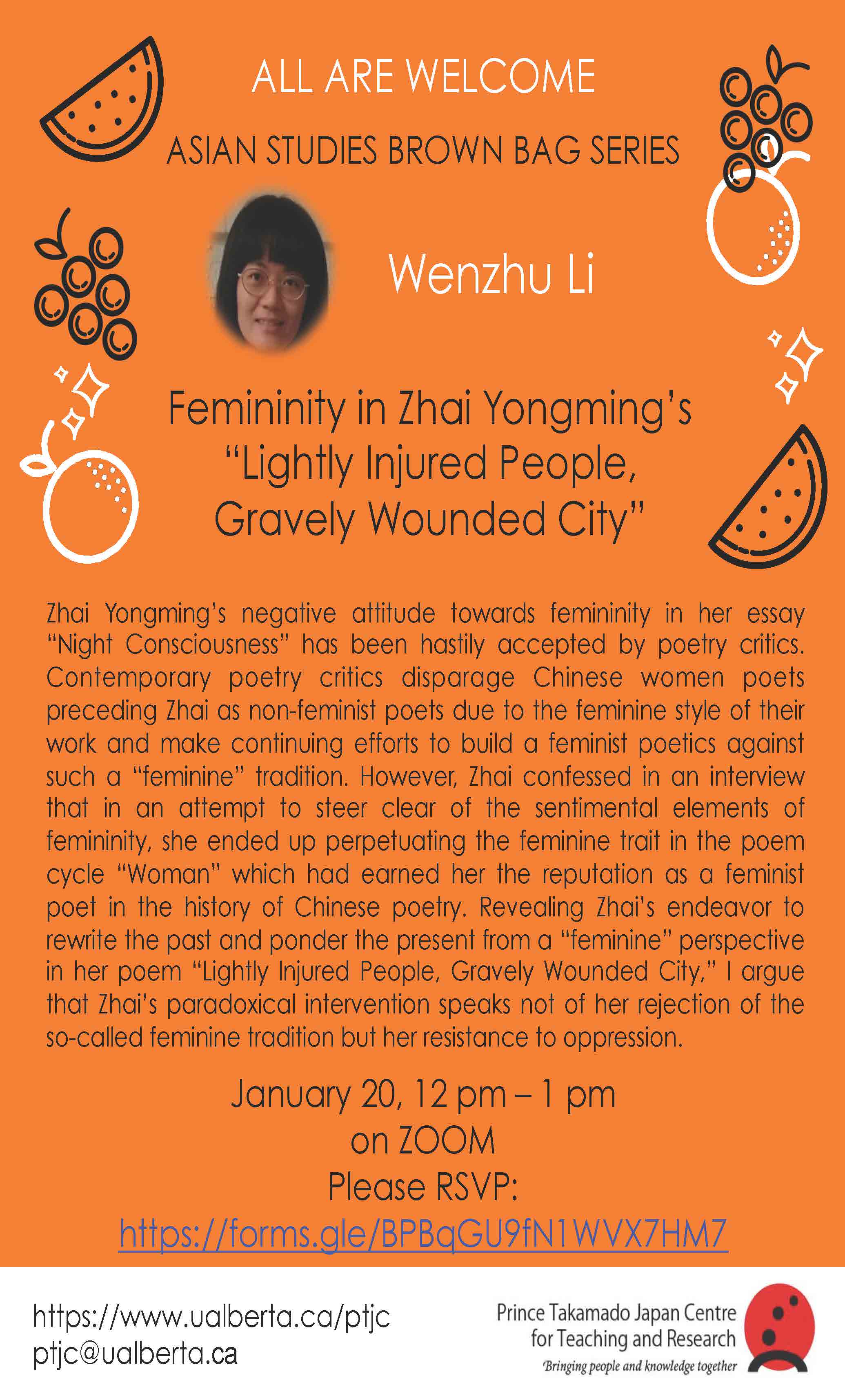PTJC is happy to host Asian Studies Brown Bag Series.
This time, Wenzhu Li is going to share her research with us.
Zhai Yongming’s negative attitude towards femininity in her essay “Night Consciousness” has been hastily accepted by poetry critics. Contemporary poetry critics disparage Chinese women poets preceding Zhai as non-feminist poets due to the feminine style of their work and make continuing efforts to build a feminist poetics against such a “feminine” tradition. However, Zhai confesses in an interview that in an attempt to steer clear of the sentimental elements of femininity, she ended up perpetuating the feminine trait in the poem cycle “Woman” which had earned her the reputation as a feminist poet in the history of Chinese poetry. Later in a critical article on the poetry of traditional women poets, Zhai once again contradicts herself. She insists that the feminine is a negative trait which is imposed on women’s works by the male critical system and that the feminine nevertheless registers the traces of women poets’ resistance against the male voice. My focus here is the critique of the male critical tradition within the problematic of “feminine” poetry and the inconsistency of the female poet Zhai. Revealing Zhai’s endeavor to rewrite the past and ponder the present from a “feminine” perspective in her poem “Lightly Injured People, Gravely Wounded City,” I argue that Zhai’s paradoxical intervention speaks not of her rejection of the so-called feminine tradition but her resistance to oppression. The purpose is to present that Zhai’s poetry may not set out to prove the truth of feminism but maps a territory for deconstructing the patriarchal imposition on the inferiority of femininity.
All are welcome!
Please register for this event here.
